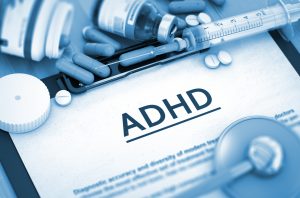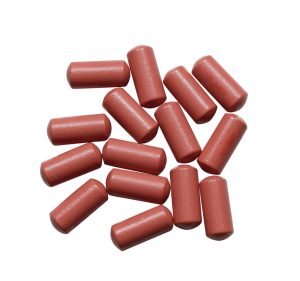Makers have 30 days to call for hearing and prove drugs work the same as brand-name
 Oct. 20, 2016 – San Diego, CA — The makers of two generic versions of the ADHD drug Concerta have one last chance to prove their products have the same therapeutic effects as the brand-name stimulant before the U.S. Food and Drug Administration pulls their approval.
Oct. 20, 2016 – San Diego, CA — The makers of two generic versions of the ADHD drug Concerta have one last chance to prove their products have the same therapeutic effects as the brand-name stimulant before the U.S. Food and Drug Administration pulls their approval.
On Oct. 17, the FDA announced it would revoke the Abbreviated New Drug Applications (ANDAs) of two previously approved generic versions of Concerta Extended Release, a stimulant medication used to treat attention-deficit hyperactivity disorder.
The generics are manufactured by Mallinckrodt Pharmaceuticals and UCB SA’s Kremers Urban Pharmaceuticals Inc. (purchased by Lannett Company Inc. in 2015 for $1.23 billion).
The FDA approved the generics made by Mallinckrodt and Kremers Urban in 2012 and 2013, consecutively. By 2014, the federal agency already had doubts about the effectiveness of the two drugs, which it said did not release the drug into the body over the same period of time as brand-name Concerta ER.
What went wrong?
In a November 2014 announcement, the federal agency said it changed the designation of the two generics to show current data was insufficient to determine their therapeutic equivalence. Though the drugs remained on the market (and still do), they were no longer automatically substituted for Concerta at the pharmacy counter.
The only “generic” form of Concerta that can be substituted is the “authorized generic” manufactured by brand-name maker Janssen Pharmaceuticals, a Johnson & Johnson subsidiary, and marketed by Actavis under a licensing agreement.
The authorized generic is “identical” to brand-name Concerta ER, which releases the drug into the body over a 10- to 12-hour period, allowing one single dose to provide the same benefits as three daily doses of immediate release ADHD medications.
But after analyzing adverse event reports and conducting its own laboratory tests, the FDA said it found the Mallinckrodt and Kremers Urban generics released the drugs at slower rates during the 7- to 12-hour range.
The agency said this “diminished released rate may result in patients not having the desired effect,” and subsequently reduced the drugs’ designations as therapeutic equivalents.
It also gave the two generic manufacturers six months from the November 2014 announcement to either remove their drugs from the market or provide data demonstrating their drugs are indeed bioequivalent to Concerta ER.
 Now what?
Now what?
Mallinckrodt and Kremers Urban now have roughly one month to request a hearing with the FDA or the agency will withdraw its approval of the drugs.
The two companies will have a chance to show why their drugs’ ANDAs should not be withdrawn and raise any issues as to the legal status of their drugs, according to the FDA’s Oct. 17 announcement.
If the companies cannot show that their generics are bioequivalent to Concerta, they will have to withdraw their products from the market.
Both versions of the Concerta generics are still available at this time, and the safety of the two drugs has never been called into question, according to the FDA. However, the two manufacturers have already taken a hit since the federal agency made its announcement.
Forbes reported shares of Lannett — the pharmaceutical company that purchased Kremers Urban last year – fell 12.9% Oct. 17 and shares of Mallinckrodt fell 1.2% the same day.
In a press release issued two days following the FDA announcement, Lannett CEO Arthur Bedrosian said the company remains confident that its generic Concerta ER products are safe and effective.
“We intend to review the scientific rationale for FDA’s most recent position and compile the scientific evidence to convince FDA’s Office of Generic Products that our product should continue to be marketed. This will preserve patient and prescriber choice, and maintain an affordable alternative drug on the market to treat attention deficit and hyperactivity disorder,” Bedrosian said in the release.
The company also noted it has until Nov. 17 to request a hearing with the FDA and until Dec. 19 to submit all data, information and analyses regarding its drug.
Mallinckrodt had not released a statement on the FDA’s proposed withdrawal of its generic ADHD medication as of this article’s publication.
Free Case Evaluation
Contact Us today for a FREE, Immediate Case Evaluation
Contact Us today for a FREE, Immediate Case Evaluation
Categories
Recent post
- When Pet Owners Fail to Control Aggressive Dogs: Legal Options for Bite Victims in California
- Rideshare Driver or Passenger? Legal Steps to Take After a California Uber or Lyft Accident
- Crosswalk Accidents: When California Drivers Fail to Yield and Pedestrians Pay the Price
- Parents, Teens, and Texting: Addressing the Dangers of Distracted Driving Among Young Drivers in California
- California Rideshare Accidents Involving Minors: What Parents Need to Understand






